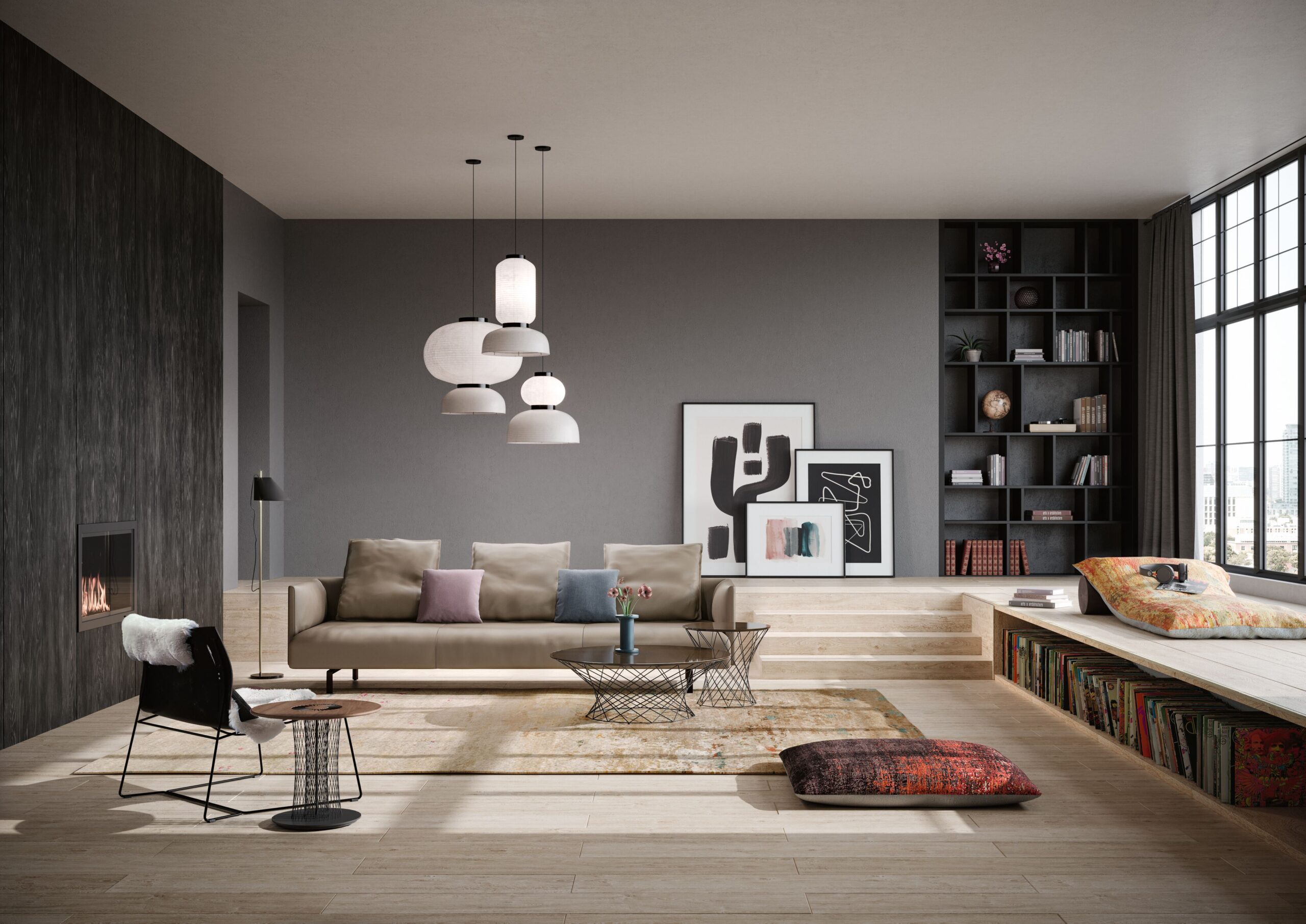
Listen carefully: how acoustics impact our wellbeing
The way we experience our environment isn’t just about what we can see – it’s about what we can hear – or perhaps more importantly, what we can’t hear. Acoustics have a powerful impact on our wellbeing and our quality of life, but sound is not often given the consideration it deserves.
Perhaps that’s why there’s a growing trend for so-called ‘listening rooms’ – a term that sets the intention for a space as somewhere specifically for enjoying reading, music, or uninterrupted quiet. Historically you might have considered something like a library, but today this is an environment where homeowners are choosing to remove the white noise of daily life by zoning in on sounds, or the lack thereof, that provide a positive experience.
Experiencing sound
Sound needs to be designed into a space, preferably from the very beginning – woven into the fabric of a building. It’s a science as well as an art to remove unwanted noise and create high quality experiences, especially in a world of intense sound pollution from computers, roads, air traffic and trains – particularly if you live or work in a metropolis.
At Nicholas Anthony we take sound seriously. If our homes are where we want to feel our best, then this powerful influence on our day-to-day experience needs to be taken fully into account. Sound is something that you only notice when it hasn’t been carefully considered. When proper attention has been paid to the insulation, engineering and sound quality, you simply know you’re enjoying where you are, whether it’s having a quiet morning coffee, watching a blockbuster movie or listening to old vinyl.
Building sound into our homes
Michael Glarvey is the Managing Director of LUUXX, which specialises in bespoke audiovisual systems and sound engineering in properties around the world. We have consulted with him on many occasions, and his knowledge and insights are invaluable. When speaking to him, he highlights that sound can be influenced on two levels in our homes – on a general level it’s about how it impacts our wellbeing and quality of life; while at a luxury level it’s about high quality entertainment, cinema rooms and sound systems.
There are basic building regulations that make specifications around sound insulation in different buildings, but these are fairly low level. The principles are not expanded upon unless it’s specified, which only happens with more luxurious properties and bespoke renovations.
Sound and wellbeing
The reason it’s important to consider the impact of sound right from the start of a building’s construction, is that it has a profound impact on our mental and physical health. Studies show that high noise levels increase stress and blood pressure, negatively impact our quality of sleep and have a catalogue of other short- and long-term health issues.
Harvard Medicine said:
“… noise pollution not only drives hearing loss, tinnitus, and hypersensitivity to sound, but can cause or exacerbate cardiovascular disease; type 2 diabetes; sleep disturbances; stress; mental health and cognition problems, including memory impairment and attention deficits; childhood learning delays; and low birth weight. Scientists are investigating other possible links, including to dementia.”
However, lots of us live with sound and simply accept it. Often we become so used to it that we don’t even notice it’s there any more. We might become accustomed to the persistent hum of a motorway in the distance, for example, and it’s only when we go somewhere truly quiet that we realise how noisy that background sound has been. However, the cumulative stress that noise impresses upon us impacts our everyday wellbeing.
Michael says: “Treating a house correctly and building it with suitable materials should be considered from the start including noise insulation at that stage as it’s harder to deal with after construction. When you’re building, it’s quite easy to choose materials such as plasterboard, which can be sound proofed to different levels and can stop noise travelling in and out. It might be 20% more expensive to take that insulation to that next level of sound proofing, but the value is infinite, especially now so many of us work from home. Offices usually have a higher level of inbuilt sound proofing to enable better concentration in the workplace, but at home people have children playing in the other room or they might have noisy roads outside, and it can be incredibly disruptive.”
Surround sound experience
When it gets into the stimulating world of entertainment, even without having a home cinema, appliances like your television create sound that reverberates around the room. You can stop it from bouncing with the strategic use of reflective panels, carefully chosen curtains and carpets. At the next level of luxury, cinema rooms can use sound to really enhance the audio as well as visual experience as well. Much emphasis is placed on the screens and the sound systems but such a lot of value is in the walls and the insulation.
Michael says: “You can place sound insulation panels behind stretch fabrics so that you don’t see them, or you can have decorative panels that look like artwork, placed at certain points around the room, depending on where the screen is and the size of the space. We work out where the panels should go and the result is an exceptional experience.”
As sensory creatures human beings are highly sensitive to sound as well as touch and scent, all contributing to how we experience a space and the emotions we feel when we’re there. Design is as much about creating spaces that consider, enhance and optimise those elements as it is about aesthetics. That’s what turns a beautiful room into an exceptional experience.



